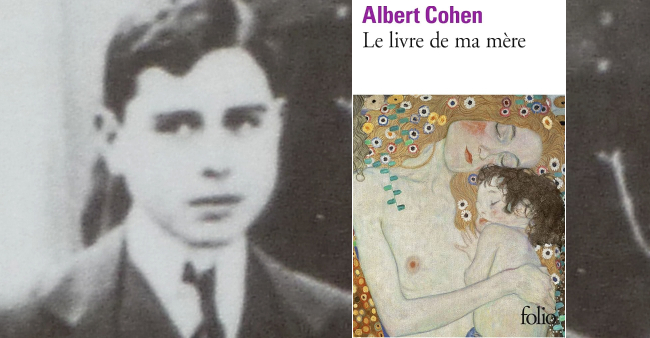The sleepless nights of a Geneva diplomat

The trouble with being a diplomat is that you have to spend your days smiling at everyone. Working in the diplomatic division of the International Labor Office in Geneva, Albert Cohen makes a point of smiling at everyone during the day, but when night comes, he has other morals. As the people outside are “so quick to be nasty, nasty for nothing”, he picks up his phone so he doesn’t have to put up with them anymore. Just like the “bastards” whose names he won’t divulge. In any case, as the opening line of this story asserts, “every man is alone and no one cares about anyone else, and our pain is a desert island”.
Albert Cohen suffers, like a kid, alone with the phone off the hook. In his rich apartment, his bourgeois oasis, although he comes from a poor Jewish family from Corfu who fled the pogroms, there is only his cat to keep him company. And his golden pen, to whom he speaks. When this book came out in 1954, Cohen saw the banks of the Styx approaching, and made a confession the likes of which one rarely reads: he missed his mother. She died while he was in London during WW2. He reminds his life as a child in Marseille. That’s where the Cohens had landed, in the city founded in ancient times by Greek settlers came from Phocaea.
Little Albert spent part of his schooling with a future academician named Pagnol Marcel, and they remained friends. Not like those who prophesied that, with his accent, he would never get the baccalaureat. “I am now a diplomat, published by Gallimard, I succeeded and screw you!,” he tells them in essence. Cohen has a gift for irony. And no god to turn to. When he does, it’s not like Job did it, to ask for back what he had: paradoxically, he wishes… to be sick, and for his mother to bring him medicine of her own. We also learn that he was ashamed of her, of her Oriental accent, of her French mistakes.
From sleepless nights to bad mornings, Albert Cohen brings his mother back to life, frequently switching back and forth between past and present. He finds a sense to his sadeness when he exhorts sons to love their living mothers more than he did his. And he seems to feel soothed. But we know that the man who would later achieve literary fame with “Belle du Seigneur”, which was an work full of his obsessions, ended his life depressed.
*****
Albert Cohen “Le Livre de ma mère”, Folio, Paris.

